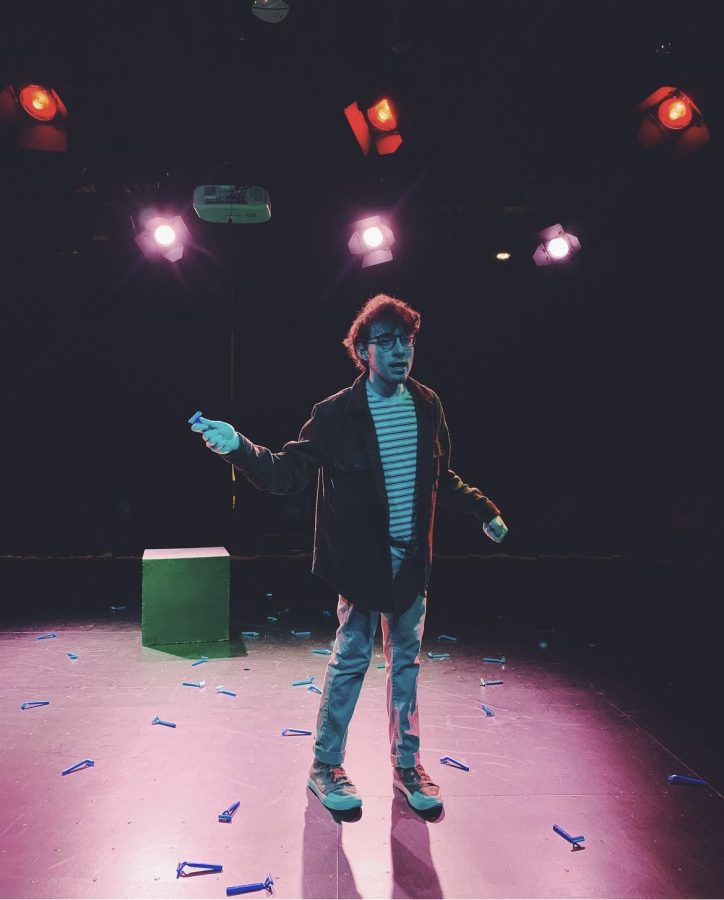Harry Wasnak’s “Body Talk”
Courtesy of VU Performance Studies
Student Harry Wasnak presented his show “Body Talk” in the Garey Hall Black Box Studio.
November 16, 2022
On Nov. 9 and 10 at 7 p.m., the Performance Studies Area in the Department of Communication presented its second show of the Fall 2022 season, titled “Body Talk.” Nearly 100 audience members gathered in the Garey Hall Black Box Studio to see the performance, written by senior Communication major Harry Wasnak and co-directed by Wasnak and Dr. Evan Schares, Assistant Professor and Coordinator of the Performance Studies Area.
“Body Talk” poetically explored bodily controversies surrounding disabilities, sexualities and racialized identities. The show was conceived through a series of interviews conducted by Wasnak over the past summer. Several individuals shared their experiences with Wasnak of bodily marginalization and granted permission for their stories to be turned into monologues.
The show used the method of ethnography and was an exercise of ethnographic performance, in which performers embodied experiences and/or social locations that differed from their own. It featured nine unique monologues, performed by an ensemble featuring Wasnak himself, sophomore Ava Studivant, sophomore Shamar Long, junior Frankie Frabizzio and junior Grace Dwyer.
Each monologue told the true story of an individual interviewed and the ways in which they have been marginalized at Villanova and beyond because of their disability, sexuality or race. Through viewing these monologues, attendees were able to better understand and resonate with each individuals’ unique experiences, whether the story was centered around race, sexual identity or disability (visible or invisible). Examples of stories told include Villanova students’ experiences living with Lyme disease and not being understood or treated fairly because her disability is oftentimes invisible, one gay student’s experience with an altercation and subsequent death threat in New York City and so much more.
Between the monologues, Wasnak performed poems that related to these experiences and identities. These poetic transitions added another more abstract, yet just as moving, layer to the performance.
The Villanovan sat down with Wasnak to discuss what motivated him to put on this show. “As a disabled queer person, I’ve always been fascinated with how people present and inhabit their bodies,” Wasnak said. “As I was thinking about what to do for my senior project, the idea of Body Talk developed as a way to research underrepresented narratives and provide a platform to create a larger conversation about how our community treats marginalized people.”
Overall, the show was extremely eye-opening for audience members. It shed light on individuals’ deeply honest and emotional experiences with body marginalization












